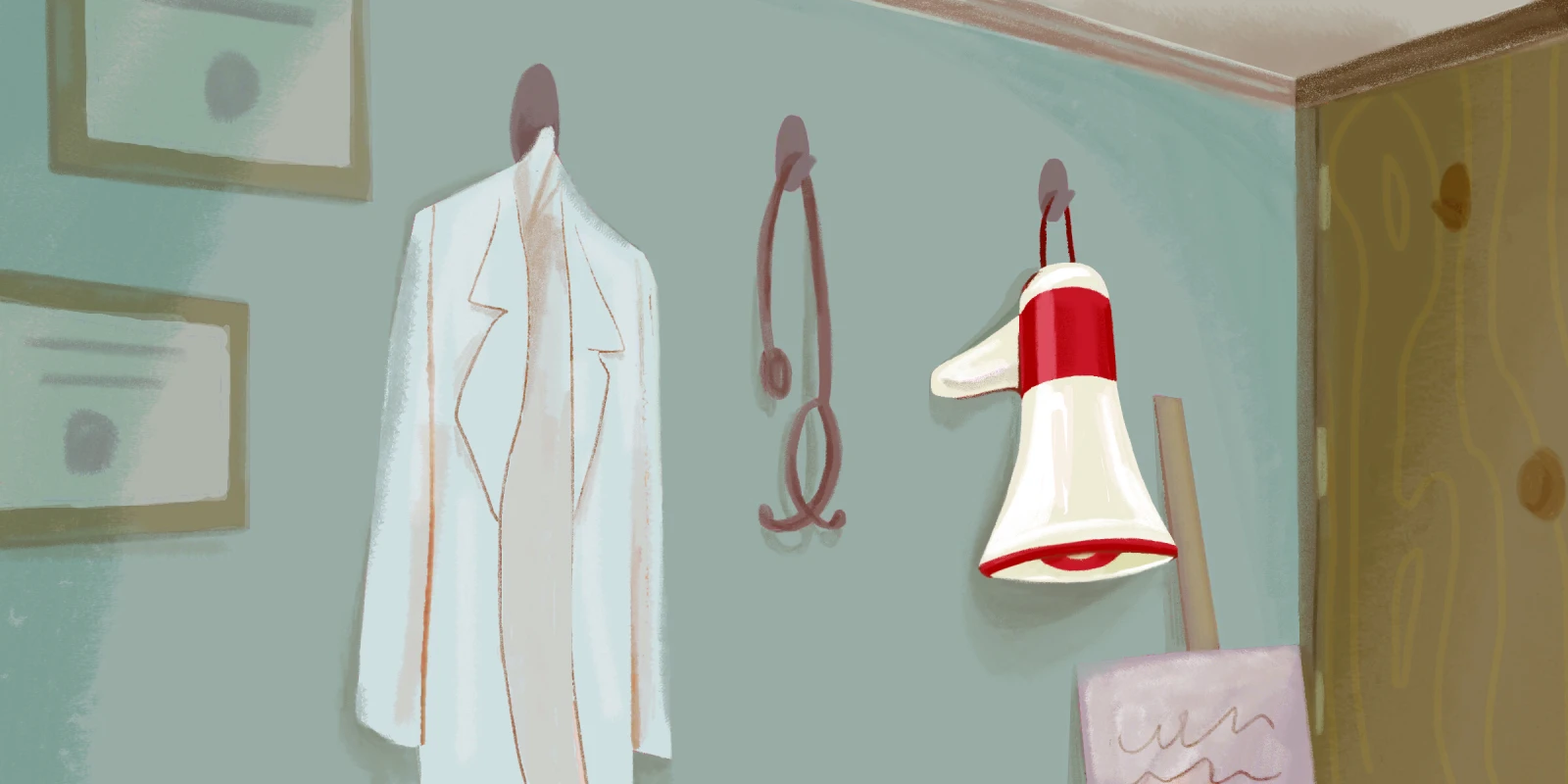I sighed inwardly, disappointed as I logged off yet another monthly virtual meeting for our hospital system’s residency council. The purpose of my role on this council was to be a representative for residents working at my hospital, to report concerns from a more global, hospital-wide perspective to our GME office and voice resident concerns on matters ranging from patient care to resident education and call room upkeep. I remember the positive energy with which I came into this elected role as an intern in the summer of 2020 – keen to listen to and to learn from my new co-residents as they shared the worries they had for their patients’ care and safety and the concerns they had about the ever-changing landscape of health care when it felt like COVID precautions would never end. Concerns also for the lack of adequate pay for trainees as it pertained to rising costs of groceries, rent, and other living expenses. These meetings always had an agenda made ahead of time, but always ended with a site-based report from all of the representatives to provide a snapshot of concerns across the board for all training programs.
As the years went by, I realized that although my own program leaders were quite supportive of concerns and often took the actions they could within their power, it was a lot harder to effect more global change through the roles myself and other representatives had. The largest frustration lay in the fact that the most essential role of a resident, at its core, is to learn medicine within the context of caring for our patients. This council I was a part of was by no means the only way through which concerns were voiced to leadership, but it was meant to be a place that brought concerns from the innermost, day-to-day struggles of the residents working at each hospital to the forefront of the people who should want to (and have the ability to) make the most impactful changes.
Over time, it felt as though there was never enough time to address each site adequately, and frustrations were often left unanswered. We could bring to attention concrete issues such as call/work room cleanliness or lounge access over and over again (resulting in intermittent improvements), but trying to address equally important but more global issues such as pay parity and adjustment for rising inflation, meal stipends that adequately accounted for the rising cost of meals in the hospitals we worked in, or the ability to do off-campus rotations post-COVID were akin to hitting brick wall after brick wall.
Going into my final year of residency (and of this role) a year ago, I remember sensing changes in the winds of resident empowerment all over the U.S. The news was intermittently filled with stories of other health care institutions forming unions all over. Many won recognition and had even reached new agreements for contracts that were more equitable for trainees – contracts that included aspects such as a more livable wage, mitigation strategies for preventing excessive workloads that could impact patient safety, appropriate food resources during call shifts, paid parental leave, and improvement in education funds.
That fall, I joined an already growing movement on our hospital campus to form its own union. Why did residents feel the need to unionize when there were so many “avenues” to voice concerns? I can’t speak for anyone but myself: my reason is for my patients and my co-residents. I’ve grown weary of seeing delays or errors in my patients’ care due to lack of resources or adequate staff, become disappointed in the divergence of my income with my inflation-risen expenses, and grown exasperated at my voice falling on deaf ears on the avenues given to me.
There were practical challenges to the effort from the get-go, some of them unique to the field of medicine when compared to other labor unions. For one, although we were all hired under the same employer, we were spread out across many programs and hospitals. Taking the initiative to reach out directly to residents and have a one-on-one conversation with others during limited time off from busy schedules can become incredibly time-consuming. Second, the unique demographics of our resident and fellow pool meant that it was especially important to explain laws and rights to those who were not U.S. citizens. Although federal law protects any union organizer from retaliation regardless of citizenship status, that would not prevent union-busting efforts from taking advantage of people’s fears of their ability to work being jeopardized. After all, residents and fellows worked incredibly hard to come this far in their careers. Speaking of time-consuming, there was always the ticking clock of the end of the academic year, where trainees in their final year would no longer be able to vote in a union election because they may no longer work at that institution after graduating. I myself fit into this category and felt keenly aware of the limited number of months left before graduation. It felt all that much more important, then, to educate myself so I could be of help in any small way.
Many months later, I’ve now graduated from residency and moved, even started my first job as a fully licensed physician. But nothing is resolved at the place I spent so much valuable time taking care of patients and learning how to become a better physician. Unfortunately, my prior employer did not voluntarily recognize the union despite overwhelming trainee support. They instead took many opportunities to prevent legal proceedings from taking place to have a formal National Labor Relations Board recognized vote. It is more bitter than sweet that I won’t get to vote when an election eventually does happen, but I continue to support my co-residents in their efforts to make the lives of trainees at the institution improved and the care of their patients safer.
Dr. Zahur Fatima Sallman is a resident physician in Pediatrics at Children’s Hospital of Michigan. She is a graduate of the University of Maryland School of Medicine. She loves acrylic painting, pizza making with her husband, and considers herself an amateur carpenter. Dr. Sallman was a 2022–2023 Doximity Op-Med Fellow.
Illustration by Diana Connolly







